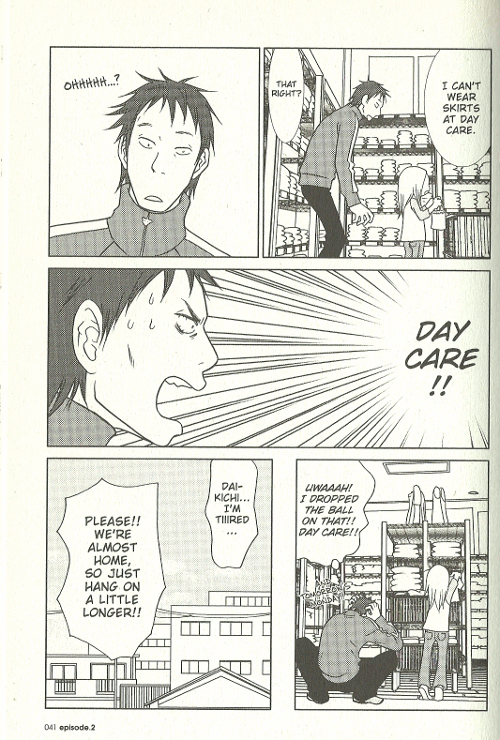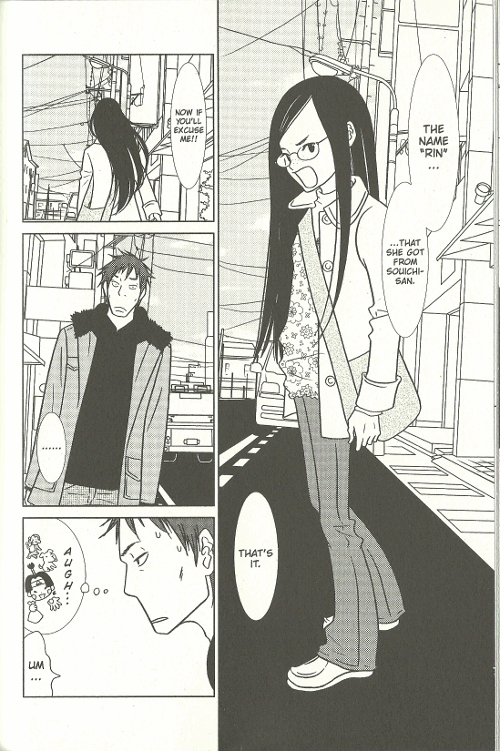Early Impressions of Bunny Drop (v. 1-2)
Bunny Drop, by Unita Yumi, is one of those comics I’ve been meaning to read for a long time now, even before the anime adaptation came out, but I only recently got in the first couple volumes. So far, it’s about as good as I’ve heard.
The premise is that a thirty-year-old bachelor, Daikichi, goes to his grandfather’s funeral and there learns, with the rest of his family, that Grandfather has a six-year-old daughter, Rin. The mother is nowhere to be found, and nobody wants to take the girl in. Irritated by his relatives’ callousness, Daikichi decides to take care of Rin himself.
Unita skilfully handles several balancing acts to make the story work. There’s a good deal of drama in these first two volumes around the family’s reluctance to accept Rin as one of theirs and Daikichi’s search for Rin’s mother, but frequent touches of humour keep the story from feeling too heavy. Similarly, though Unita emphasises the importance of family life, she doesn’t romanticise it, either. For example, to care for Rin properly Daikichi has to give up a well-paying sales job and transfer to the distribution department of the company he works for. Though a couple of co-workers sympathise with his situation, most either don’t understand or react with outright hostility at being suddenly left short-handed. In the course of the story, Daikichi also learns that his mother had to sacrifice her career entirely to raise him and his sister.

I especially appreciate the theme of how one person’s actions affect other people, often unintentionally. Rin’s mother, Masako, doesn’t want anything to do with her daughter, apparently so she can pursue her own career. However, this forces Rin’s other relatives to raise her, and Daikichi is left sacrificing his career to raise Masako’s daughter. Changing jobs is what’s best for Rin, and Daikichi is willing to do it, but that also leaves his employer and co-workers in a pinch.
Understandably, Daikichi initially resents Masako because of how she left Rin, but interestingly Unita doesn’t portray her as simply self-centred. Once Daikichi contacts and meets her, she does show some concern for Rin, and it seems clear that there’s more to Masako’s circumstances that Unita will reveal later on.
As much as I like Bunny Drop’s story, the art is rather lackluster. The backgrounds are simple and sometimes non-existent. The character art is also simple, which isn’t necessarily a problem, but the designs are generally unappealing. It’s not too bad, just uninspiring.

I’m hoping the art improves as the series goes on, but so far the story and characters are enough to keep me interested. I have heard that the ending ruined the series for a lot fans, and based on what I’ve heard I can probably guess what happens, so I’ll certainly wait until I finish before making a recommendation.
(Oh, and if you want to leave a comment about the ending, go ahead - I don’t care about spoilers; just give a warning for those who do care).